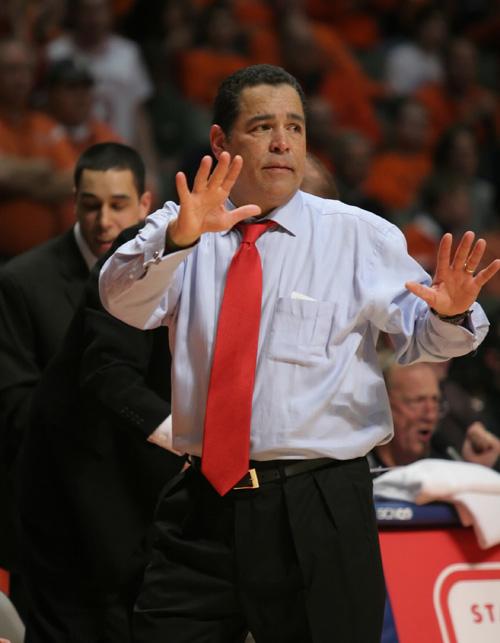Clemens maintains denial of steroid use under oath
Feb 14, 2008
WASHINGTON – Separated by only a few feet, Roger Clemens and his accuser were never further apart.
There they sat, the star pitcher and his former personal trainer, Brian McNamee, sharing a wooden witness table Wednesday while speaking to Congress under oath and facing blistering questions. For 41/2 hours, both men stuck to their versions of the he-said, he-said disagreement over whether McNamee injected Clemens with steroids and human growth hormone.
Clemens insisted it never happened. McNamee insisted it did.
His reputation and Hall of Fame candidacy potentially at stake – not to mention the possibility of criminal charges, should he lie – Clemens said: “I have never taken steroids or HGH. No matter what we discuss here today, I am never going to have my name restored.”
For some members of the House Committee on Oversight and Government Reform, Clemens’ denials rang hollow, particularly in light of a new account of his discussion of HGH use, revealed by his friend and former teammate Andy Pettitte in a sworn affidavit.
Get The Daily Illini in your inbox!
“It’s hard to believe you, sir,” Rep. Elijah Cummings, D-Md., told Clemens. “I hate to say that. You’re one of my heroes. But it’s hard to believe.”
Clemens and McNamee, once employer and employee, and by all accounts once good friends, rarely looked at one another. Seated between them was the day’s third witness, Charles Scheeler, a lawyer who helped compile the report on drug use in baseball headed by former Senate majority leader George Mitchell.
Occasionally, Clemens stuck out his famous right arm – the one that earned 354 major league wins, seven Cy Young Awards and $160 million – to jab a finger in McNamee’s direction. Even when the pitcher gestured, though, he stared straight ahead. Just like the Rocket’s mound glare.
“I have strong disagreements with what this man says about me,” Clemens intoned.
Just like their stories, Clemens’ Texas drawl was in strong contrast to the clipped cadences of McNamee, a former New York police officer.
“I told the investigators I injected three people – two of whom I know confirmed my account,” McNamee said. “The third is sitting at this table.”
Ultimately, the matter could wind up with the Justice Department if prosecutors believe either man made false statements. The Justice Department is also reviewing used needles and bloody gauze pads McNamee turned over last month. He said they contained performance-enhancing drugs and Clemens’ DNA.
“We found conflicts and inconsistencies in Mr. Clemens’ accounts,” said Rep. Henry Waxman, D-Calif., who is the committee’s chairman. “During his deposition he made statements we know are untrue.”
Waxman said afterward he hadn’t “reached any conclusions” as to whether a criminal investigation is warranted, although several congressmen said a referral from the committee isn’t needed to trigger one. As ranking Republican Tom Davis of Virginia, put it: “Both can’t be telling the truth.”
The session, held on the same day pitchers and catchers started reporting for spring training in Florida and Arizona, came exactly two months following the release of the Mitchell Report.
That investigation was prompted by another hearing on steroids held by the same committee in the same wood-paneled room, on March 17, 2005. That is best remembered for having tarnished the reputations of Mark McGwire – who infamously repeated, “I’m not here to talk about the past” – and Rafael Palmeiro – who wagged his finger and declared he never had used steroids, then failed a drug test months later.
In a reference to that day, Rep. Mark Souder, an R-Ind., cautioned Clemens and McNamee: “It’s better not to talk about the past than to lie about the past.”
Wednesday’s hearing, which Waxman indicated would be his committee’s last on the subject, was prompted by Clemens’ various and vigorous denials of what McNamee told Mitchell. The Mitchell Report was the first public accounting of McNamee’s allegations that he injected Clemens with HGH and steroids 16 to 21 times from 1998 to 2001. McNamee said Wednesday he now thinks those numbers are too low.






